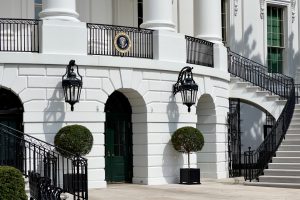As more state legislatures introduce legislation expanding the reach of their antitrust laws and state attorneys general ramp up their use of antitrust investigations and litigation, the legal landscape continues to become more complex for companies and the courts. Recently, the California enforcers filed an appeal in Association for Accessible Medicines v. Becerra,[1] of a federal judge’s limiting the extraterritorial reach of California’s Assembly Bill 824[2] (“A.B. 824”).
A.B. 824, signed by Governor Gavin Newsom in 2019, attempts to ban settlements between generic and brand pharmaceutical manufacturers colloquially known as “reverse payment” settlements. These sorts of settlements arise when a generic manufacturer takes steps to launch a drug product despite the branded manufacturer’s claim to market exclusivity by virtue of its patent protections over that drug. A reverse payment settlement commonly involves a brand pharmaceutical manufacturer offering something of value to a generic manufacturer in exchange for the generic manufacturer’s agreement to delay its market entry until a certain date in the future.
In Federal Trade Commission v. Actavis, Inc.,[3] the U.S. Supreme Court examined the legal standard that applies to reverse payment settlements, holding that the agreements should be evaluated under the rule of reason. California’s A.B. 824 was enacted in response, and it categorically deemed these agreements anticompetitive as a matter of law and provided for fines of up to $20 million or three times the amount received by the violator in striking the deal—whichever is larger.
In August 2020, the Association for Accessible Medicines (“AAM”), a trade group representing generic pharmaceutical manufacturers, sued the State of California, arguing the law was unconstitutional. In December 2021, the court entered a preliminary injunction, prohibiting enforcement of A.B. 824 pending resolution of the instant lawsuit. In February 2022, the injunction was modified to permit the state to enforce the law only as to “settlement agreements negotiated, completed, or entered into within California’s borders.”
In February 2025, the court entered an order resolving cross-motions for summary judgment, effectively permanently memorializing the state of affairs created by the February 2022 injunction. The court held that A.B. 824 did indeed violate the dormant Commerce Clause insofar as it purported to regulate settlement agreements that had absolutely no connection to California. Accordingly, the court held that the state may enforce the law only as to “settlement agreements negotiated, completed, or entered into within California’s borders.” The order permanently enjoined the state from enforcing A.B. 824 with respect to any settlement agreement that lacked such a connection to California.
At first blush, the order appears to be a victory for the AAM and its member manufacturers. It would seem that so long as generic manufacturers steer clear of negotiating, completing, or executing reverse payment agreements within California borders, they will remain out of the reach of the fines and penalties codified in A.B. 824.
It is unclear whether the pending appeal will resolve two key issues raised by the order. First, the court expressed its concern that A.B. 824, on its face, permitted California to regulate conduct that had no connection to the state whatsoever. In response, the state attempted to argue that this was not the case, asserting A.B. 824 applied only to settlements that cover drug sales in California. With this limitation, the state suggested that A.B. 824 targeted only settlements with some demonstrable connection to California. The court ultimately rejected this argument—not because the sales connection was too tenuous, but solely because the text of A.B. 824, on its face, did not include a limitation to only settlements involving California sales of pharmaceuticals. Thus, the court has left open the proverbial door for California—and other states—to amend A.B. 824 and similar laws to include a sales limitation. In the absence of a full-throated analysis of this defense, it is unclear whether such a limitation would allow for a broader application of A.B. 824 than that permitted by the instant order, one which would undoubtedly trouble the AAM and its members.
Second, the state argued that it should be permitted to enforce A.B. 824 because many states across the country maintain antitrust statutes that already prohibit conduct akin to that regulated by this particular law. The court quickly dispensed with this argument, noting that no state may enforce antitrust legislation ultimately found to violate the dormant Commerce Clause. To the extent challenges are brought, the question of the constitutionality of these state antitrust laws may well boil down to whether the law contains sufficient limiting language so as to target only that unlawful conduct that bears some connection to the subject state.
It unlikely that California’s appeal will resolve the risk for market participants. For example the district court’s order may act as a catalyst for suits challenging the breadth of similar state antitrust laws across the country. In particular, the order leaves ambiguous the potential for California—or other states—to expand the breadth of these antitrust laws by including language that would tie their enforcement to activity that involves sales in the subject state. The growing number of state-level premerger notification requirements and new and amended statutes aimed at expanding the scope of the antitrust laws to conduct not deemed per se illegal under the federal law, or at making it easier for private plaintiffs or enforcement agencies to challenge business activities successfully, will likely complicate antitrust compliance, compliance training, and risk management for companies engaged in interstate commerce.
Before engaging in activity aimed at resolving disputes over generic entry and brand patent protection, it is important to engage competent counsel to prevent any unnecessary cost and expense that may result from an unwitting violation of state law.

















